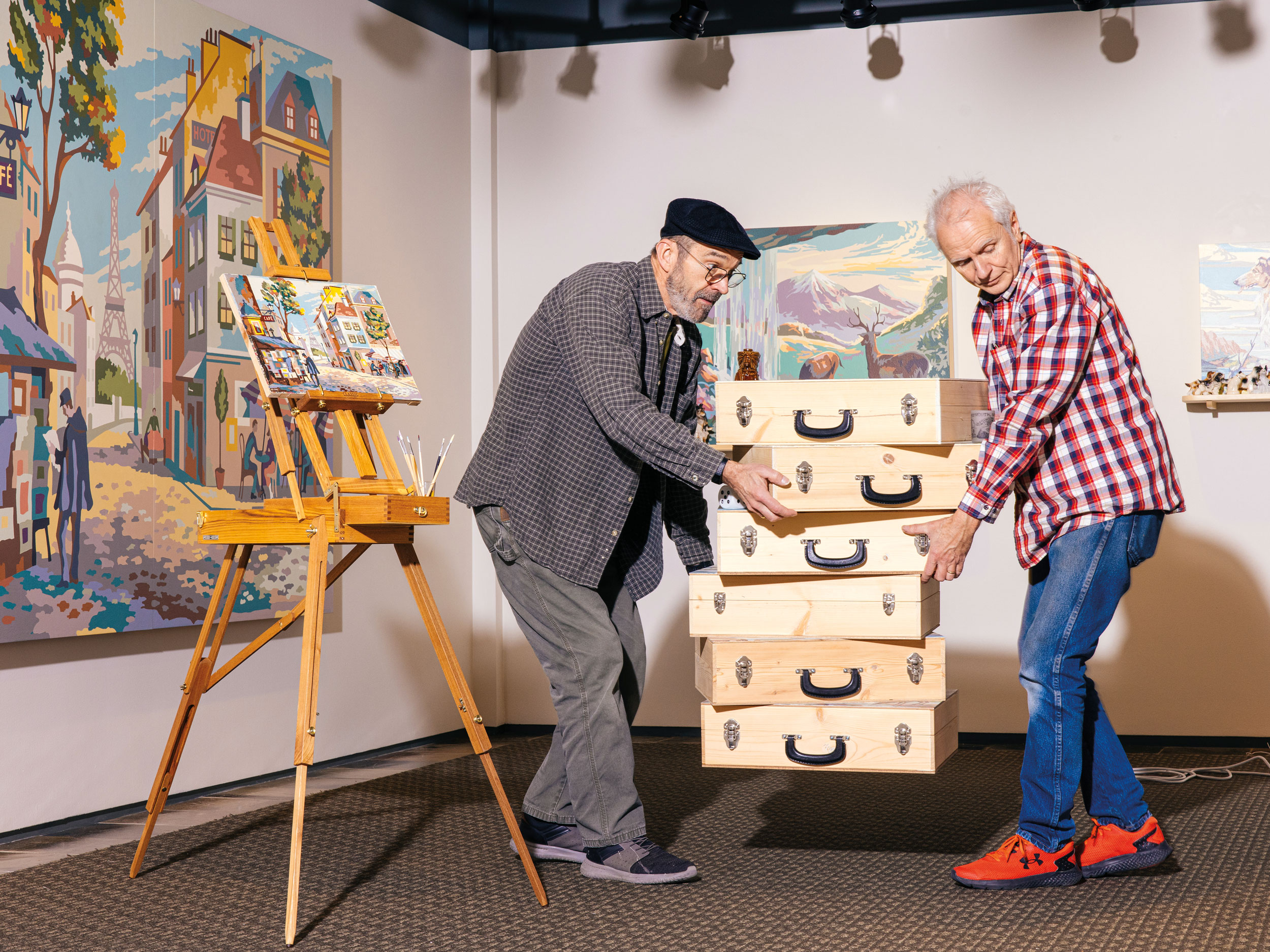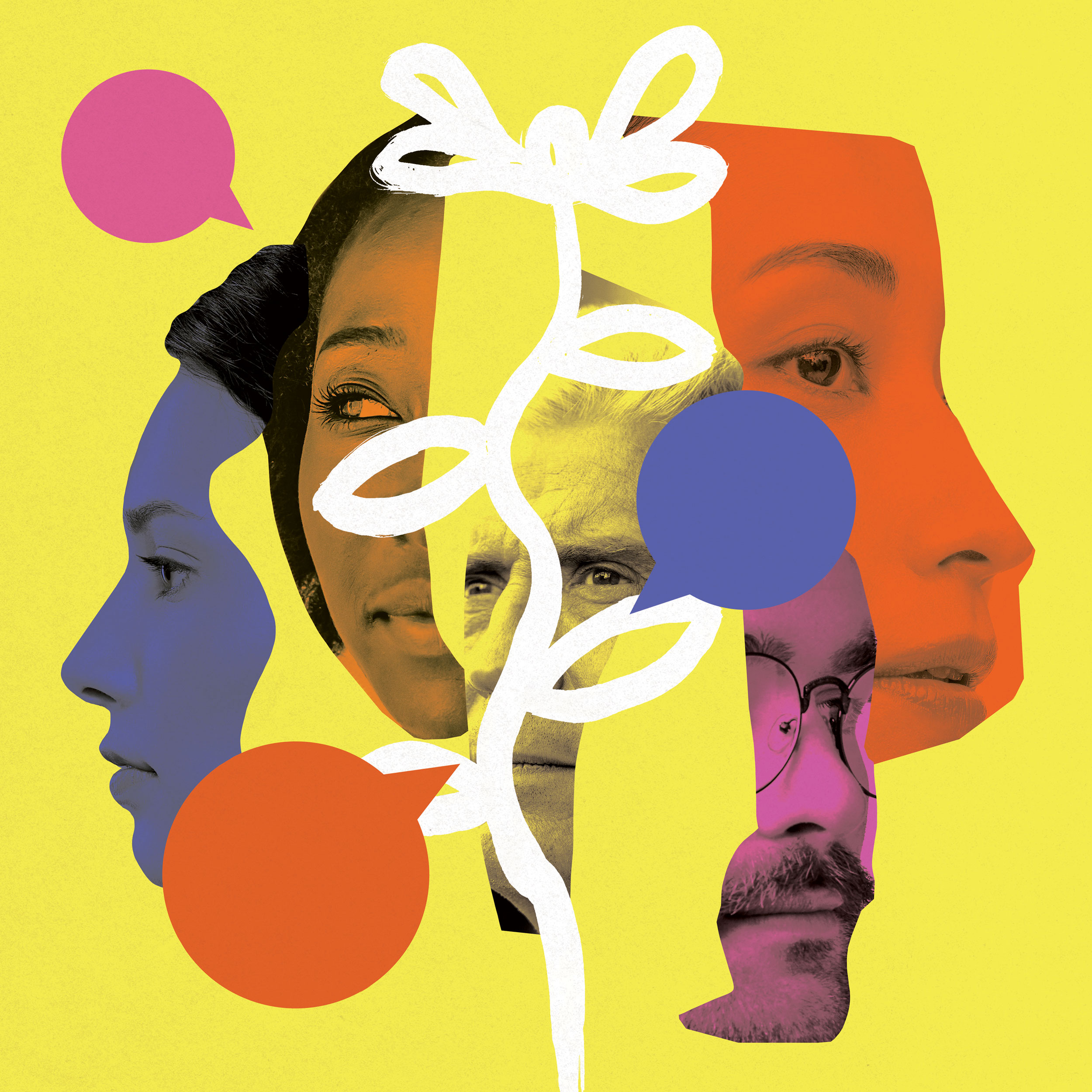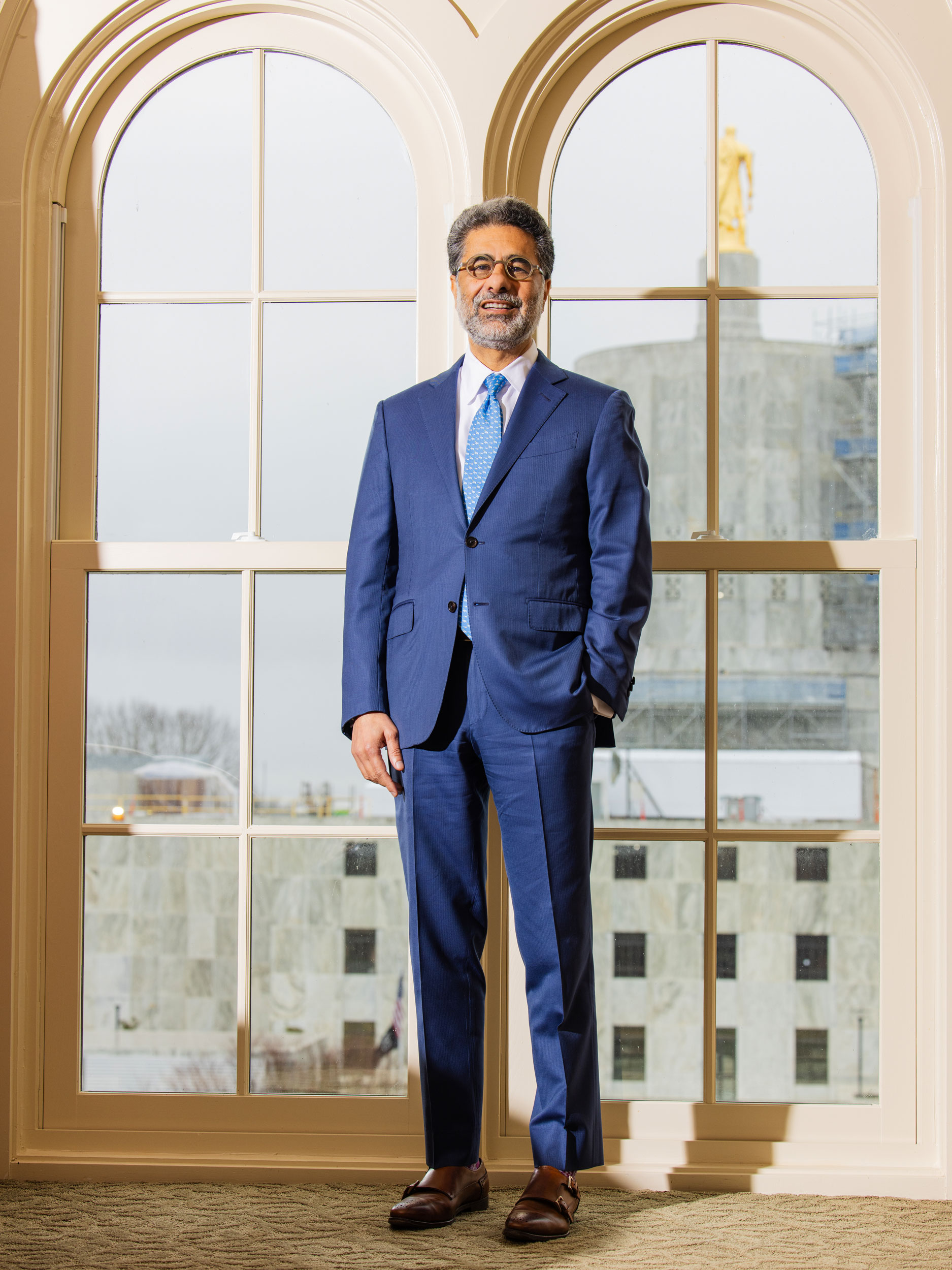
The sun was setting, casting a pale orange glow over vast stretches of green farmland. I’ve come to relish this half-hour drive that takes me from my suburban home, across a busy freeway, through rural stretches of Oregon’s wilderness, and into a charming small-town neighborhood. The shifting landscape and uninterrupted time help me prepare for a grief group I facilitate. On this particularly glowing evening, I was sure I’d found just the right metaphor to spark reflection. Inspired by the green stems bursting from the brown frosted ground, I wondered: What grows out of our grief? If grief is our winter, what blooms in our spring? We could talk about the weeds, the daffodils, the bulbs we forgot we’d planted, the perennials that loyally emerge.
When I arrived at the center, I realized our group would be quite small that evening. No worries, I thought. My inspired question will give us much to ponder. We followed our gathering rituals: sharing our names, with each speaker also naming the person who’d died and their cause of death; recalling our safety guidelines; and settling into our shared space. Then, I invited the participants to check in. As it turned out, the two weeks since we’d last met had been particularly challenging. So much so that our time together rapidly dwindled. From trembling lips, stories poured forth of how anticipatory grief was compounding feelings of grief over losses that were brought painfully to the surface by looming death anniversaries.
What grows out of our grief? That question first sitting on the tip of my tongue quickly flew from my mind. Following the details of the participants’ stories, connecting their concerns, and inviting reluctant sharers into our conversation demanded my full mental focus. That evening, I realized the group didn’t need my inspired metaphors. They needed me to hold space for their conflicted feelings, suppressed stories, and pressing concerns. They needed me to listen.
I am learning to be a better listener. When I tell people about my volunteer work, or about the grief- and death-communication courses I teach at Willamette, they often respond by asking: “What should I say to someone who has lost a loved one?” People want to learn specific phrases of support that will “work,” and they want to know which words to avoid. They want to learn how to ease another’s pain and, perhaps, their own discomfort too. I get it. That’s precisely what I had spent my drive out to the support group that evening contemplating.
As I listen to grief—whether in a one-on-one conversation, or in facilitating a support group, or in the classes I teach—I am continually reminded that nothing I say is ever going to feel exactly right. The “right” words won’t bring back the people we lost, and words rarely make our longing for them sting any less. I am learning, however, that the experience of being listened to helps most mourners.
In fact, the importance of social support for the bereaved is undeniable. Study after study links low social support with depression among grievers. Conversely, research indicates that those with strong social support networks are less likely to become depressed than those without support. Social support networks need not be vast. In fact, having just one trusted confidante has been shown to reduce the risk of depression in studies of adults following divorce, job loss, assault, natural disaster, and warfare. Grief group models, like the approach Chaplain Rev. I. Pearl Player and I used to create the “Diversity of Loss” group at Willamette, are informed by this well-established research demonstrating the power of peer support—of listening.
If grief support is not about saying the right thing, but rather about listening, then how do we learn to listen? We live in a culture that is not only grief-avoidant but also listening-averse. Western cultures often celebrate speaking, writing, posting, and other forms of self-presentation, considering listening to be a passive position. The emphasis on self-presentation, combined with widespread grief taboos, leave the bereaved to face awkward, unhelpful, sometimes even hurtful responses to their grief-sharing. Genuine, empathetic, and supportive grief-listening is sorely needed, but often difficult to come by.
We can all learn to listen better, as a crucial part of becoming a more grief-informed culture. Through dedicated practice, those who are sincerely willing can provide meaningful support to bereaved loved ones, friends, students, colleagues, patients, and neighbors. This is good news for grievers—and for all of us, because it’s incredibly difficult to feel helpless in the face of someone else’s pain.
Listening to grief is not a passive act, but rather an active process, wherein the listener carves out time, prepares for the conversation, and adapts to the needs of the bereaved, all the while cultivating a space and a disposition of openness. During the conversation itself, the listener encourages the griever to share, emotionally participates in their sharing, and reflects back to them core aspects of what they have shared. The compassionate listener resists common conversational tendencies to fix another’s problem, give advice, shift the topic to their own grief, speed the storyteller along, and interrupt.
I encourage grief listeners to imagine that their verbal and nonverbal behavior is scaffolding supporting the bereaved as they talk about their loss. If a verbal or nonverbal offering that pops into the listener’s mind will detract from, divert attention away from, or otherwise demolish the understanding that the bereaved is building, then I encourage the listener to practice self-restraint. Centering the intention that listening is scaffolding helps guide empathetic actions and responses.
Although listening to grief takes time, dedication, and practice, it’s well worth the effort. When engaged in with care, grief dialogues help us all grow.
••
Maegan Parker Brooks is an associate professor in Willamette’s civic communication and media department and a facilitator at Dougy Center, The National Grief Center for Children and Families. She is also a co-founder of Willamette’s Diversity of Loss peer grief support group. This essay is adapted from her forthcoming book, AFTER: Guided Communication Practices for Intentional Grieving.



